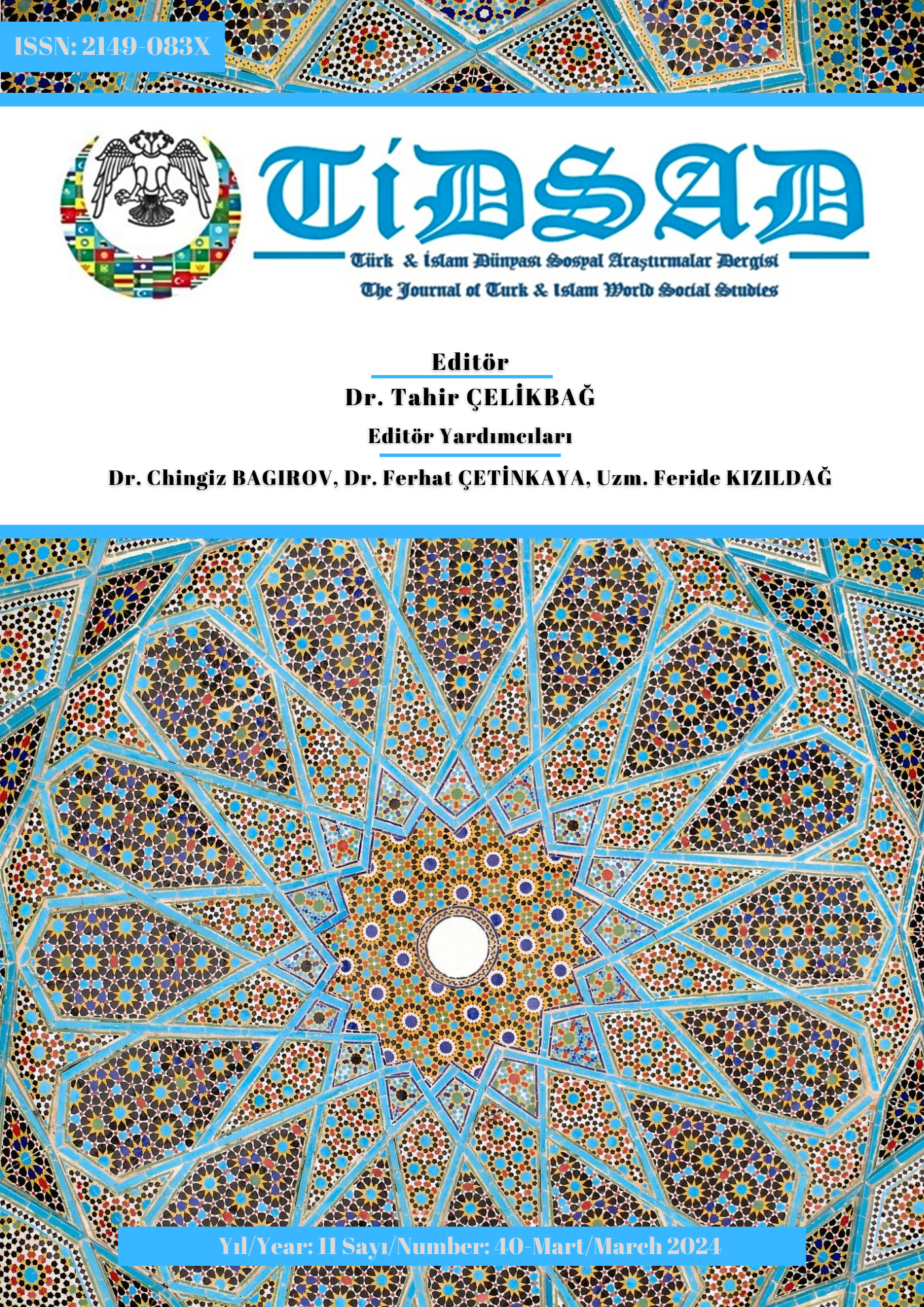Author :
Abstract
Irak hapishane edebiyatı birçok nedenden dolayı yeterince ele alınmamış edebi türlerden biridir. Çalışmamızda Irak hapishane edebiyatında alımlama kuramının etkisinin incelenmesi hedeflenmiştir. Alımlama kavramının yansıma ve etkileri temelinde duygusal ve insani yönlerin edebi metinde kullanımının sonuçları ve okuyucuyla metin arasında sağlam bir bağ kurmaya olan katkısı değerlendirilmiştir. Böylelikle temel edebi amaçlardan biri olan okuyucu – metin etkileşimi vurgulanmak istenmiştir. İlgili edebiyatın taşıdığı insani anlamlarla ve sergilediği abartı ve yapmacıklıktan uzak gerçekçi duygularla böylesi bir etkileşimin doğması hapse dair yazılan metinlerin estetik yönlerini öne çıkaracak niteliktedir. Bundan dolayı, Irak’ta hapiste bir süre geçiren ve tutukluluk tecrübesi hakkında eser kaleme alan isimlerin şiir ve düz yazı örnekleri seçilmiş ve araştırmamız kapsamında yorumlanmıştır. Irak’ta XX. yüzyılın ikinci yarısında darbeler, hükümet değişiklikleri ve siyasi durumların istikrarsızlığı gölgesinde çoğunlukla düşünce veya siyasi tutum gereği mahkûm olan Iraklı müellifler, kendilerini ve etkileyici hayati tecrübelerini ifade etmek üzere edebiyattan başka bir yol bulmamış, yapıtlarında tutukluluk yaşamının bir portresini ortaya koymuşlardır. Söz konusu edebiyatın değeri, okuyucuyu metni derinlemesine tarama ve düşünmeye, metnin içindekilerini keşfetmeye, sembollerini bulmaya ve göstergelerini belirlemeye yönlendiren alımlama kuramı çerçevesinde yapılan analizlerde gizlidir.
: يعد أدب السجون العراقي من الأنواع الأدبية التي لم يُسلط الضوء عليها بشكل كافٍ وذلك لأسباب مختلفة لا يسع المقام لذكرها وما يعنينا هنا هو دراسة ذلك الأدب لمعرفة مدى تأثير نظرية القراءة فيه وبيان انعكاسات ذلك التأثير واستثمار الجانب العاطفي والإنساني في تحقيق حالة التأثر وما يترتب عليها من علاقة مميزة تربط القارئ بالنص وهو ما يحقق الهدف الذي نطمح إلى تحقيقه ألا وهو التفاعل مع النص، وذلك التفاعل يتحقق نتيجة التأثر بما يحمله ذلك الأدب من معانٍ وما يعكسه من مشاعر حقيقية ليس فيها تصنّع أو مبالغة فهو بذلك سيسهم في إبراز جماليات النصوص الأدبية لأدب السجون العراقي. لذلك تم تناول نصوص نثرية وشعرية لأدباء قضوا ردحا من حياتهم داخل السجون وكتبوا تجاربهم أثناء فترة الاعتقال وبعدها وصوروا لنا حياة السجن سيما وإن معظمهم كان سجين رأي أو موقف سياسي وتحديدا في النصف الثاني من القرن الماضي حيث الانقلابات وتبدل الحكومات وعدم استقرار الأوضاع السياسية، لذلك لم يكن لهم من سبيل إلاّ الأدب ليعبروا من خلاله عمّا مروا به من تجارب حياتية مؤثرة، ومما لا ريب فيه أن قيمة ذلك الأدب هو بما ينعكس عنه من تحليلات في ضوء نظرية القراءة التي تجعل القارئ هو من يحفر في النص ويكتشف مكنوناته ويستخرج رموزه ويظهر دلالته.
Keywords
Abstract
The literature on Iraqi prisons is one literary theme that has not been adequately highlighted for various reasons, which cannot be fully mentioned here. The aim of this study is to understand the influence of reception theory on this literary theme and to demonstrate the reflections of that influence. It involves investing in the emotional and human aspects to achieve a state of influence and the unique relationship that binds the reader to the text. This achieves the goal we aspire to, which is to interact with the text. The realization of this interaction, as a result of being affected by the human meanings conveyed by this literature and the genuine emotions it reflects, without any artificiality or exaggeration, will contribute to highlighting the aesthetics of the literary texts of Iraqi prison literature. Therefore, prose and poetry texts by writers who spent a period of their lives in prisons were examined. They wrote about their experiences during the period of detention and afterward, portraying prison life. Most of them were prisoners of opinion or had a specific political stance, especially in the second half of the last century, during political upheavals, changes in governments, and the instability of political situations. Thus, literature became their only means to express the impactful life experiences they went through. There is no doubt that the value of this literature lies in the analyses it reflects in the light of reception theory, which allows the reader to delve into the text, discover its intricacies, extract its symbols, and reveal its significance.





